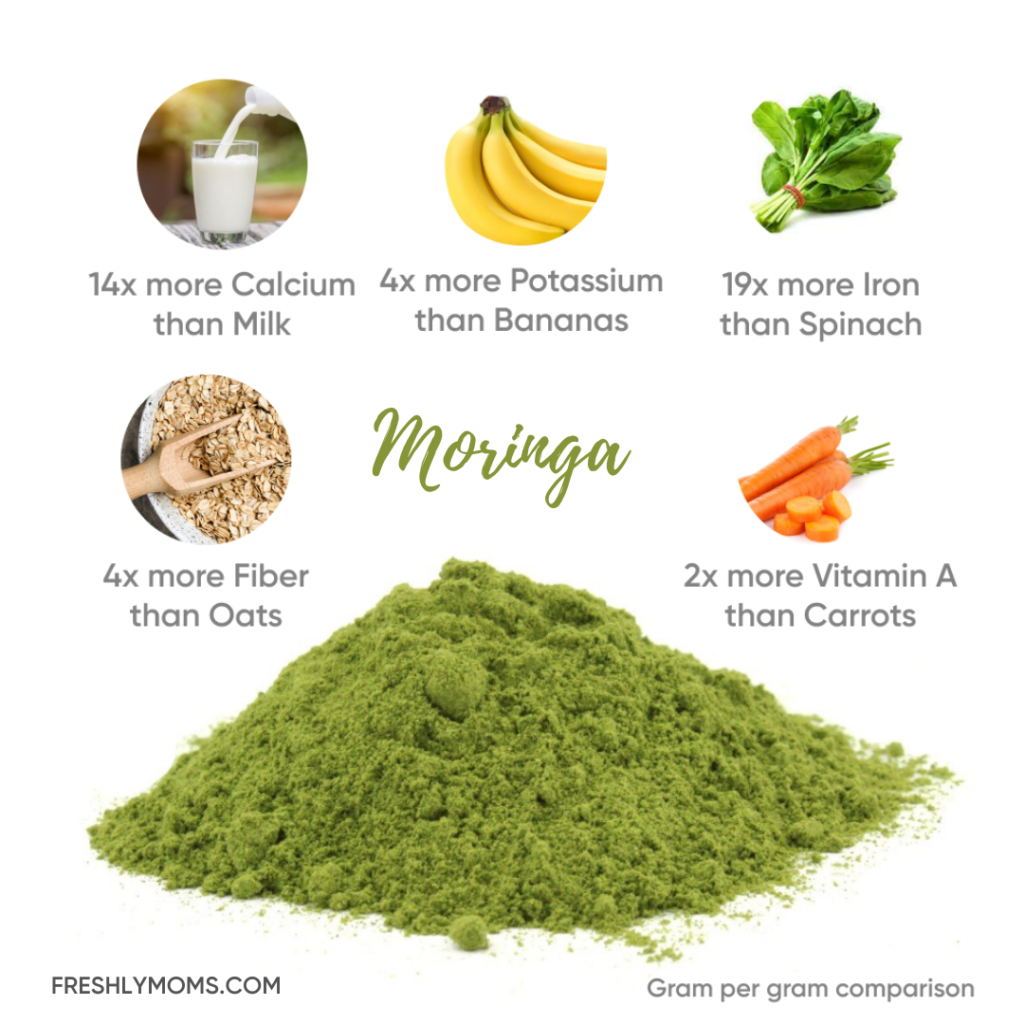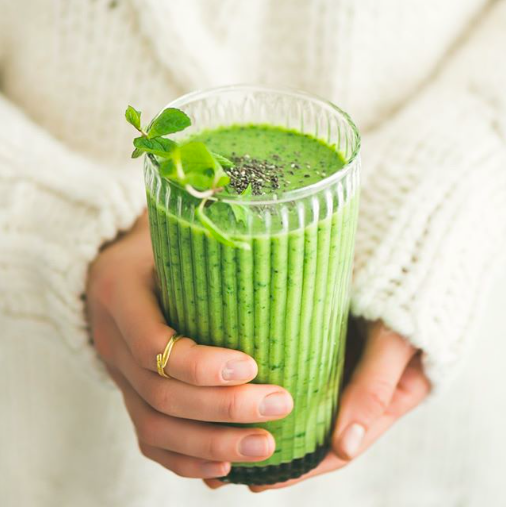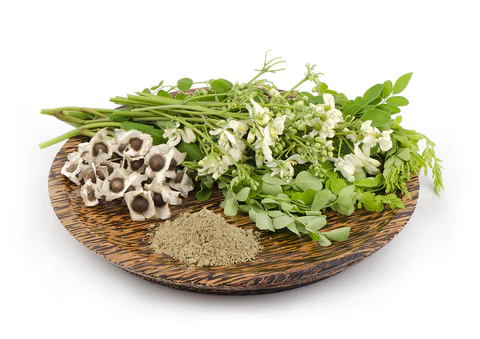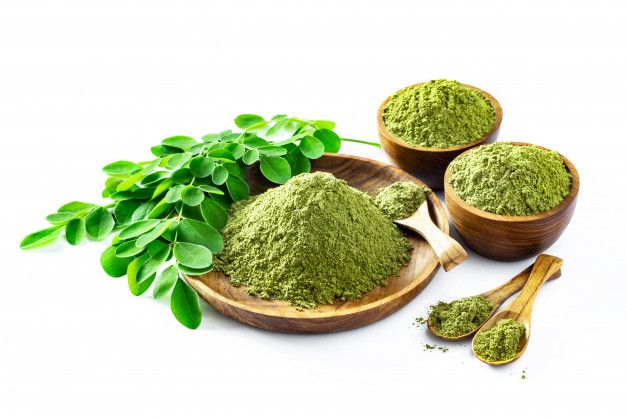Moringa, often hailed as the “miracle tree,” stands tall as a reservoir of health and nutritional benefits, particularly in the form of its potent leaf powder. Originating from the Moringa oleifera tree, this leaf powder has garnered attention worldwide for its exceptional properties and diverse applications.
Table of Contents
Introduction to Moringa Leaf Powder
What is Moringa?
Moringa is a fast-growing tree native to South Asia but found in various tropical and subtropical regions. Its leaves, pods, seeds, and flowers hold immense nutritional value and medicinal properties. The Moringa leaf powder, derived from sun-dried leaves, is a concentrated form rich in essential nutrients like vitamins, minerals, and antioxidants.
Brief History and Origin
The history of Moringa dates back thousands of years, and its origins can be traced to South Asia, particularly the Indian subcontinent. Here’s a brief overview of the history and origin of Moringa:
Ancient Roots: Moringa oleifera, often referred to as the “Miracle Tree” or “Drumstick Tree,” has a rich and ancient history. It was cultivated and used for various purposes by civilizations in South Asia, including India and Sri Lanka, as far back as 2000 BCE. The tree’s versatility and nutritional value made it an integral part of traditional medicine and cuisine.
Spread Across Continents: Over time, Moringa’s popularity extended beyond its region of origin. It found its way to other parts of Asia, Africa, and even the Americas through trade routes, migrations, and colonial exploration.
Traditional Uses: Throughout history, Moringa was revered for its leaves, pods, seeds, and roots, all of which had practical and medicinal uses. Its leaves were consumed as a nutrient-rich food source, its seeds were pressed for oil, and its roots were used in traditional remedies.
Nutritional Treasure: Moringa’s reputation as a nutritional treasure was well-established in traditional medicine systems. It was believed to have properties that promoted overall well-being, strengthened the immune system, and addressed various health issues.
Colonial Influence: During the era of European colonialism, Moringa gained attention from explorers and colonial powers due to its potential as a sustainable food source and its ability to thrive in challenging environments. Its cultivation spread to regions in Africa, the Caribbean, and South America.
Modern Resurgence: In recent decades, Moringa has experienced a resurgence in global popularity, driven by increased awareness of its exceptional nutritional value. It has been recognized as a “superfood” and is cultivated and consumed worldwide. Additionally, research into its health benefits has contributed to its modern-day prominence.
Nutritional Profile
1. Vitamins:
- Vitamin A: Moringa is exceptionally rich in vitamin A, providing several times more beta-carotene than carrots. Vitamin A is essential for vision, immune function, and skin health.
- Vitamin C: Moringa leaf powder is a potent source of vitamin C, which supports immune health, collagen formation, and antioxidant protection.
- Vitamin E: This antioxidant vitamin in Moringa helps protect cells from oxidative damage and supports skin health.
- Vitamin K: Moringa contains vitamin K, which plays a role in blood clotting and bone health.
2. Minerals:
- Calcium: Moringa is a valuable source of calcium, important for strong bones and teeth, muscle function, and nerve signaling.
- Potassium: Adequate potassium intake supports heart health, blood pressure regulation, and overall bodily functions.
- Iron: Moringa provides iron, which is crucial for oxygen transport in the blood and the prevention of anemia.
- Magnesium: This mineral is essential for muscle and nerve function, bone health, and energy metabolism.
3. Protein:
- Moringa leaf powder is a notable source of plant-based protein, containing all nine essential amino acids. It can be particularly valuable for vegetarians and vegans looking to meet their protein needs.
4. Antioxidants:
- Moringa is packed with antioxidants like quercetin, chlorogenic acid, and beta-carotene, which combat free radicals, reduce oxidative stress, and protect cells from damage.
5. Dietary Fiber:
- Moringa leaf powder contains dietary fiber, which supports digestive health, aids in regular bowel movements, and promotes a feeling of fullness.
6. Phytonutrients:
- Moringa contains various phytonutrients, including flavonoids, polyphenols, and isothiocyanates, which have potential health benefits, including anti-inflammatory and anticancer properties.
7. Omega-3 Fatty Acids:
- Moringa leaf powder contains a small amount of alpha-linolenic acid (ALA), an essential omega-3 fatty acid important for heart and brain health.
8. Carbohydrates:
- Moringa provides carbohydrates, serving as an energy source in the diet.
9. Low-Calorie:
- Moringa leaf powder is low in calories, making it suitable for those looking to manage their calorie intake while still receiving essential nutrients.
10. Low-Fat: – Moringa is naturally low in fat, making it a healthy addition to various diets.

Health Benefits
- Nutrient-Rich Superfood: Moringa leaf powder is a nutritional powerhouse, providing essential vitamins, minerals, and antioxidants. It is known for its dense concentration of nutrients, making it a valuable addition to the diet.
- Immune System Support: The vitamins, minerals, and antioxidants in Moringa leaf powder contribute to a strengthened immune system. Regular consumption may help the body fend off infections and illnesses more effectively.
- Antioxidant Protection: Moringa is rich in antioxidants like quercetin, chlorogenic acid, and beta-carotene. These antioxidants combat oxidative stress, reduce inflammation, and protect cells from damage caused by free radicals.
- Energy and Vitality: Many people turn to Moringa leaf powder to boost energy levels and combat fatigue, thanks to its nutrient density and natural source of vitality.
- Anti-Inflammatory Properties: Moringa exhibits anti-inflammatory effects, potentially aiding in the management of inflammatory conditions like arthritis and promoting overall well-being.
- Blood Sugar Regulation: Some studies suggest that Moringa may help regulate blood sugar levels, making it of interest to individuals with diabetes or those looking to maintain healthy glucose levels.
- Weight Management: Moringa’s low-calorie, nutrient-rich composition supports individuals in their efforts to manage their weight and maintain a balanced diet.
- Digestive Health: Moringa leaf powder promotes healthy digestion, regular bowel movements, and gut health. Its fiber content aids in digestion and supports beneficial gut bacteria.
- Skin and Hair Health: The vitamins and antioxidants in Moringa contribute to healthy skin and hair. It is a common ingredient in skincare and haircare products due to its potential beauty benefits.
- Nutrient for Children: Moringa leaf powder is used to combat malnutrition in children in various parts of the world. Its high nutritional value makes it valuable for addressing nutritional deficiencies in young populations.
- Antimicrobial Properties: Laboratory studies have explored Moringa’s potential as a natural antimicrobial agent, showing promise in inhibiting the growth of certain pathogens.
- Bone Health: Moringa’s calcium and phosphorus content contributes to strong bones and teeth, supporting overall bone health.
- Anti-Aging: The antioxidants in Moringa may help slow the aging process by protecting the skin from oxidative damage and reducing the appearance of fine lines and wrinkles.
- Heart Health: While research is ongoing, some studies suggest that Moringa may have a positive impact on heart health by helping to lower cholesterol levels and reduce blood pressure.
Culinary Uses and Recipes
1. Moringa Smoothie:
- Blend 1-2 teaspoons of Moringa leaf powder with your favorite fruits, yogurt, or milk alternatives for a vibrant and nutritious morning smoothie.
2. Moringa Soup:
- Add Moringa leaf powder to vegetable soups or stews during the last few minutes of cooking to preserve its nutrients. It imparts a mild, earthy flavor.
3. Moringa Salad Dressing:
- Mix Moringa leaf powder into homemade salad dressings or vinaigrettes for added nutrition and a unique green hue.
4. Moringa Guacamole:
- Enhance the flavor and nutrition of guacamole by incorporating Moringa leaf powder into the avocado mash.
5. Moringa Hummus:
- Blend chickpeas, tahini, lemon juice, garlic, olive oil, and a teaspoon of Moringa leaf powder to create a nutritious Moringa-infused hummus dip.
6. Moringa Pesto:
- Combine Moringa leaf powder with basil, garlic, pine nuts, Parmesan cheese, and olive oil to make a vibrant Moringa pesto sauce for pasta or sandwiches.
7. Moringa Rice:
- Mix Moringa leaf powder into cooked rice, quinoa, or couscous to infuse grains with added nutrition and a beautiful green color.
8. Moringa Omelette:
- Whisk Moringa leaf powder into eggs before making an omelette or scrambled eggs for a nutrient-packed breakfast.
9. Moringa Baked Goods:
- Incorporate Moringa leaf powder into muffin, pancake, waffle, or bread recipes to add a nutritional boost and a unique color.
10. Moringa Energy Bars: – Create homemade energy bars by mixing Moringa leaf powder with nuts, seeds, honey, and dried fruits.
11. Moringa Ice Cream: – Make your own Moringa-flavored ice cream by blending the powder into the ice cream base for a unique and nutritious treat.
12. Moringa Tea: – Brew Moringa leaf powder in hot water to create a soothing herbal tea. You can also add it to other herbal tea blends for extra nutrients.
13. Moringa Latte: – Mix Moringa leaf powder with hot milk or a milk alternative to create a Moringa latte, adding a dash of honey or sweetener if desired.
14. Moringa Seasoning: – Sprinkle Moringa leaf powder over salads, roasted vegetables, or grilled meats as a nutrient-rich seasoning or garnish.
15. Moringa Fruit Smoothie Bowl: – Create a nutritious smoothie bowl by blending Moringa leaf powder with frozen fruits and topping it with granola, nuts, and fresh berries.

Sustainability and Environmental Impact
Moringa, often hailed as the “Miracle Tree,” offers several sustainability benefits and has a relatively low environmental impact. Here’s how Moringa contributes to sustainability and environmental well-being:
1. Drought Resistance: Moringa is well-known for its drought-resistant qualities. It can thrive in regions with limited water resources, making it an ideal crop for arid and semi-arid climates. Its ability to grow in these conditions reduces the strain on water resources compared to water-intensive crops.
2. Minimal Water Requirements: Moringa trees have shallow roots but can access groundwater efficiently, requiring significantly less water compared to many other crops. This conserves water resources and contributes to sustainable agriculture.
3. Soil Improvement: Moringa trees have a unique ability to enhance soil quality through a process known as “rhizoremediation.” Their roots release natural chemicals that improve soil fertility, reduce erosion, and support reforestation efforts. This can rejuvenate degraded lands and promote sustainable land use.
4. Reforestation: Moringa is often used in reforestation projects due to its fast growth and ability to thrive in challenging environments. Planting Moringa trees can help combat deforestation, protect watersheds, and restore ecosystems, contributing to overall environmental health.
5. Carbon Sequestration: As trees, Moringa plants absorb carbon dioxide from the atmosphere, aiding in carbon sequestration. This natural process helps mitigate climate change by reducing greenhouse gas levels.
6. Biodiversity: Moringa trees provide habitat and food sources for various wildlife, contributing to biodiversity in the regions where they are cultivated. This supports overall ecosystem health.
7. Sustainable Agriculture: Moringa can be integrated into agroforestry systems, where it provides shade and shelter to other crops. This promotes biodiversity, reduces soil erosion, and supports sustainable agricultural practices.
8. Economic Opportunities: Moringa cultivation creates economic opportunities for local communities and small-scale farmers. They can sell Moringa products such as leaf powder, oil, and seeds, generating income and improving livelihoods, which can lead to greater environmental stewardship.
9. Food Security: Moringa’s nutritional density and adaptability to different climates contribute to food security in regions facing malnutrition and food shortages.
10. Sustainable Development Goals: Moringa aligns with several of the United Nations’ Sustainable Development Goals (SDGs), including those related to zero hunger, good health and well-being, clean water and sanitation, and responsible consumption and production.
Challenges and Misconceptions
While Moringa offers numerous health benefits and sustainability advantages, it is not without its challenges and misconceptions. Here are some of the common issues associated with Moringa:
1. Limited Scientific Research: Despite its popularity, there is still a need for more extensive scientific research to fully understand Moringa’s potential health benefits, dosage recommendations, and long-term effects. Some claims about Moringa may lack robust scientific evidence.
2. Varied Quality and Purity: The quality and purity of Moringa products can vary widely. Not all Moringa supplements or powders on the market meet the same quality standards, leading to concerns about consistency and efficacy.
3. Proper Sourcing and Quality Control: Ensuring the purity and safety of Moringa products can be challenging, particularly in regions with less stringent quality control measures. Proper sourcing, testing, and quality control are essential to address these concerns.
4. Dosage and Moderation: While Moringa is nutrient-dense, excessive consumption can lead to digestive discomfort and potential adverse effects. Finding the right dosage for individual needs is essential.
5. Medication Interactions: Moringa may interact with certain medications, such as blood thinners and medications for diabetes and hypertension. People taking these medications should consult with healthcare professionals before adding Moringa to their diet.
6. Allergies and Sensitivities: Some individuals may be allergic to Moringa or may experience sensitivities to its components. Cross-reactivity with other plants is possible, so those with allergies should exercise caution.
7. Environmental Impact: While Moringa is generally considered environmentally friendly, improper cultivation practices and deforestation for Moringa farming can have negative environmental consequences. Sustainable cultivation methods are essential.
8. Ethical Considerations: The increasing demand for Moringa can sometimes lead to unethical practices such as land grabbing or exploitation of local communities. Ethical sourcing and fair trade practices should be prioritized.
9. Misconceptions About a “Cure-All”: Some misconceptions surround Moringa’s reputation as a “miracle” or “cure-all” plant. While it offers numerous health benefits, it should not be seen as a replacement for a balanced diet and proper medical care.
10. Cultural Appropriation: As Moringa gains global popularity, there can be concerns about cultural appropriation and the commercialization of traditional practices. Respecting the cultural significance of Moringa is important.
11. Nutrient Supplementation vs. Balanced Diet: Moringa can be a valuable dietary supplement, but it should not replace a balanced diet. A variety of foods are necessary to meet all nutritional needs.
12. Sustainable Sourcing: While Moringa has environmental benefits, there is a need to ensure its cultivation and harvesting are sustainable to prevent overexploitation and maintain biodiversity.

Safety and Precautions
While Moringa leaf powder offers numerous health benefits, it’s important to use it safely and take necessary precautions. Here are some safety guidelines to keep in mind when incorporating Moringa leaf powder into your diet or wellness routine:
1. Dosage and Moderation:
- Start with a small amount of Moringa leaf powder and gradually increase your intake. Excessive consumption may lead to digestive discomfort, such as diarrhea or stomach cramps.
2. Allergies and Sensitivities:
- Some individuals may be allergic to Moringa or may experience sensitivities to its components. If you have a history of allergies to plants or tree nuts, consult with a healthcare professional before using Moringa.
3. Medication Interactions:
- Moringa may interact with certain medications, including blood thinners, medications for diabetes, and hypertension drugs. If you are taking any prescription medications, consult your healthcare provider before adding Moringa to your diet.
4. Quality and Source:
- Choose high-quality Moringa leaf powder from reputable brands and sources to ensure it is free from contaminants and sourced from reliable, organic, or sustainable sources.
5. Purity and Contaminant Testing:
- Ensure that the Moringa leaf powder you use has been tested for contaminants such as heavy metals, pesticides, and microbial pathogens. Look for products with lab testing results available for transparency.
6. Nutrient Fortification vs. Balanced Diet:
- Moringa leaf powder can be a valuable dietary supplement, but it should not replace a balanced and varied diet. A diverse range of foods is essential for overall health.
7. Pregnancy and Breastfeeding:
- Pregnant and breastfeeding women should exercise caution when using Moringa leaf powder. While it is generally considered safe, it’s advisable to consult with a healthcare professional before including it in your diet to ensure it won’t interfere with pregnancy or breastfeeding.
8. Quality and Storage:
- Store Moringa leaf powder in a cool, dry place away from direct sunlight to maintain its freshness and nutritional content. Proper storage helps prevent degradation.
9. Gradual Introduction:
- Some individuals may experience digestive sensitivity when first introducing Moringa into their diet. Start with a small amount and gradually increase your intake to allow your digestive system to adjust.
10. Consult a Healthcare Professional: – If you have specific health concerns, dietary restrictions, or medical conditions, it is advisable to consult with a healthcare professional or registered dietitian before adding Moringa leaf powder to your diet or wellness routine.
Source to Get Organic Moringa Leaf Powder Capsules
Conclusion
Moringa leaf powder emerges as a sustainable, nutrient-rich resource with multifaceted benefits for health, culinary exploration, and environmental stewardship. Its cultural significance, coupled with ongoing research, paves the way for a greener and healthier future.
FAQs
- Is Moringa leaf powder safe for everyone?
- How can I incorporate Moringa into my daily diet?
- What are the primary nutrients present in Moringa leaf powder?
- Are there any known side effects of consuming Moringa?
- Where can I find reliable sources for obtaining Moringa products?
